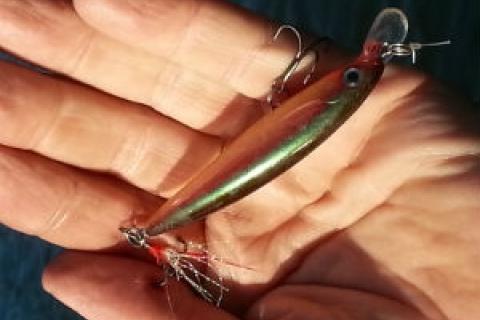
The unhooking process is potentially hazardous to the angler, especially when the fishing lure sports multiple treble hooks. One slip at an inopportune moment can result in a dropped fish and a hook in the hand.
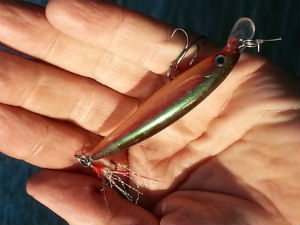 It was this situation that I found myself in during a recent river smallmouth outing. A nice two-pound bass had t-boned my Rapala X-Rap, clamping down on the belly hook in such a manner that its mouth was pinned shut, i.e. hooked in both the upper and lower lip.
It was this situation that I found myself in during a recent river smallmouth outing. A nice two-pound bass had t-boned my Rapala X-Rap, clamping down on the belly hook in such a manner that its mouth was pinned shut, i.e. hooked in both the upper and lower lip.
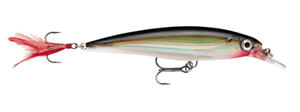
Typically I net treble hooked bass in the fish-friendly Frabill Conservation Series fishing net, then carefully lip the fish and remove the hook(s) with the appropriate tool. But with its mouth wired shut, literally, a simple lip grab was impossible. As I tried to pry its mouth open enough to get a purchase point, the fish flip-flopped. A split second later I had one tine of the tail treble in my index finger, another tine in my thumb. Like the fish, I had valued body parts pinned together.
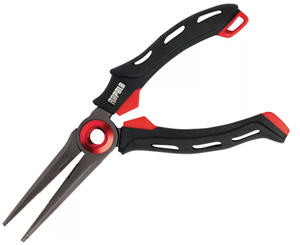
Luckily we had the proper tools aboard to deal with the situation. The line was cut, to free the rod and reel from the mess. Then with long nose pliers like the Rapala Mag Spring Fishing Pliers my boat partner was able to twist the hooks free of the fish — one tine at a time — so it could be released. A Rapala Fisherman's multi-tool was produced. I was able to slide the cutter portion of the tool around the treble, cutting it so that I only had a single tine in my thumb and forefinger. Using my Bass Pro Shops Emergency Hook Remover Kit I firmly grasped each tine at the bend and popped
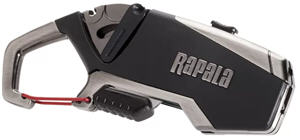
them free. The nearby Bass Pro mergency Hook Removal first-aid kit produced an alcohol wipe and antiseptic ointment to treat the tiny punctures. A moment later I was re-rigged with a fresh X-Rap; moments later I was into another river smallmouth.
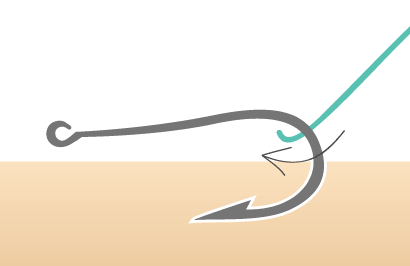 Having the right items — pliers, cutters, hook remover, first aid kit — allowed us to deal with the situation and get back to the fishing. The cutter on the multi-tool worked well for clipping the hook, though it's a good idea to also carry side cutters, which have the cutting tool right out on the tip, in a better position for this particular task.
Having the right items — pliers, cutters, hook remover, first aid kit — allowed us to deal with the situation and get back to the fishing. The cutter on the multi-tool worked well for clipping the hook, though it's a good idea to also carry side cutters, which have the cutting tool right out on the tip, in a better position for this particular task.
Some circumstances call for medical attention. If the hook is near your eye, in a joint, in a bone or deep in your muscle, you should seek medical attention, according to WebMD.com. Also see a doctor if you're concerned that removing the hook may damage nearby blood vessels; the person who is injured is not calm and cannot help with the procedure; or you are afraid to remove the hook.
Also read: Fish Hook Removal and Injury Prevention
- 10214 views

